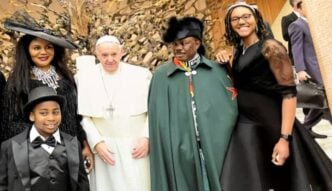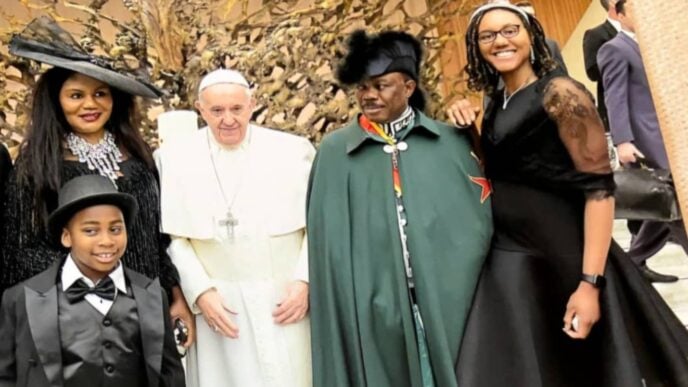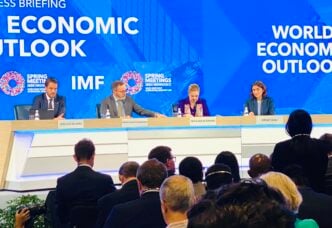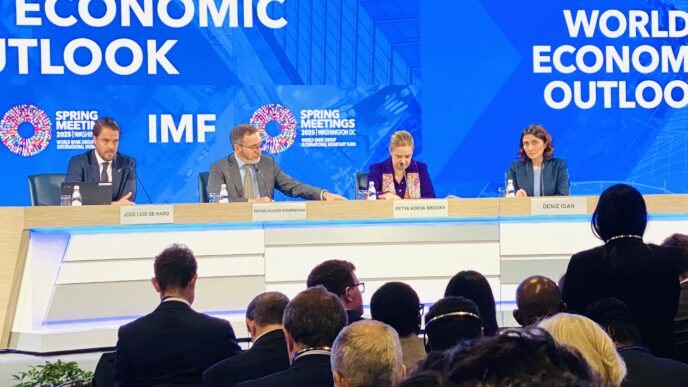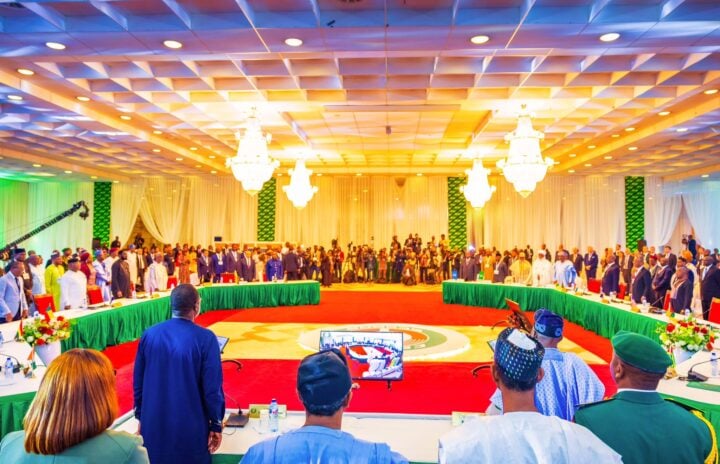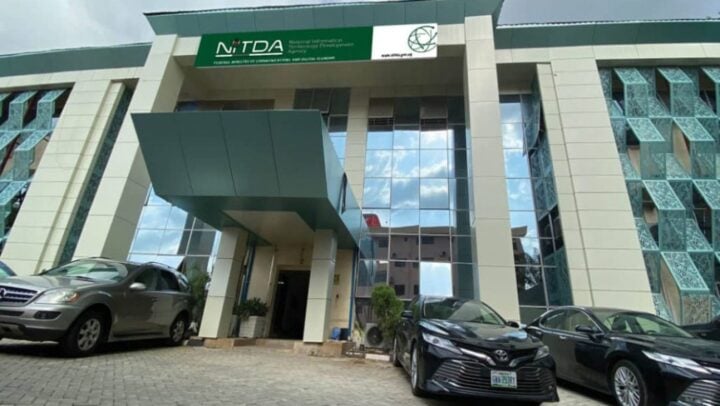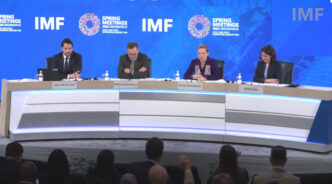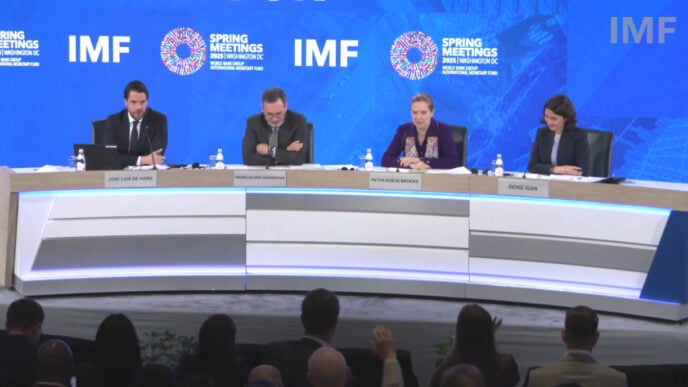Barely two years into his papacy, Pope Francis stole the hearts of millions of Africans. In 2015, the pope made history when he visited the Central African Republic (CAR), a nation that had buckled under the weight of civil war and sectarian violence.
It was the first time a pope would visit the country, and it was also the first time a clergyman of that authority would visit an active war zone. But other factors made the trip a defining moment. Francis’ trip to CAR was part of a seven-day African tour which included visits to Kenya and Uganda, almost 30 years after a papal visit to the latter East African country.
In each country, his message was different. In Kenya, he urged the then Uhuru Kenyatta-led administration to fight corruption and promote peace; in Uganda, he emphasised the importance of unity, and in CAR, he preached reconciliation and forgiveness.
Years later, Francis would travel to Egypt, Mozambique, Madagascar, Mauritius, the Democratic Republic of Congo (DRC) and South Sudan, tailoring his sermons to the plight of the people. Despite the different realities, all his messages centred on one theme — compassion over condemnation.
Advertisement
Francis knew his doctrine would take some time to penetrate the deeply conservative continent where morality, shaped by culture and religion, takes centre stage. But he continued to gently reecho his beliefs, weaving them around sensitive topics from interfaith dialogue to reforms within the church — reforms that deeply troubled the many Africans who came to love him.
PASTORAL APPROACH OVER DOGMA: THE CHANGES UNDER FRANCIS

Compared to most previous popes and the traditional positions of the Catholic Church, Francis was progressive by Vatican standards. He never failed to remind parishioners that he wanted a church that listened, welcomed, and healed, rather than judged and excluded. In doing so, he emphasised mercy, inclusion, and dialogue over strict enforcement of rules.
Advertisement
In 2021, the Vatican said it would not bless same-sex marriages since “God cannot bless sin”. The Christian Association of Nigeria (CAN) applauded the pope for his “godly and timely” decision at a time morals were being eroded. Some three years later, the pope softened his stance, approving blessings for same-sex couples, formalised in the 2023 document Fiducia Supplicans.
In the Catholic Church, a blessing is a prayer or plea, usually delivered by a minister, asking God to look favourably at the person(s) being blessed. The Vatican clarified that “such blessings should not be conducted with any church rites that offer the impression of a marriage”. Before approving the blessings, the pope said “pastoral charity” requires patience and understanding, adding that priests should not become judges “who only deny, reject and exclude”.
Francis’s reforms were met with stiff resistance, mostly from Africa. In open condemnation of the Vatican’s orders, the Catholic Bishops Conference of Nigeria (CBCN) said there was no possibility of adjusting to the changes. They stressed that same-sex unions and activities go against “God’s law, the teachings of the Church, the laws of our nation and the cultural sensibilities of our people” and maintained that the CBCN would not change its views. The statement was signed by Lucius Ugorji, archbishop of Owerri diocese; and Donatus Ogun, bishop of Uromi.
Ignatius Kaigama, Archbishop of Abuja Catholic Archdiocese, chided the pope for not holding open discussions at all levels in the church on such matters.
Advertisement
“We have a duty to listen to the rest of the universal church, just as our African culture, ethics and morality have much to offer to our universal family, the Church,” Kaigama added.
The resistance was also felt in Malawi, Ghana, and Congo. Later, in a united voice, the Symposium of Episcopal Conferences of Africa and Madagascar (SECAM), which represents all national Catholic bishops’ conferences across Africa and Madagascar, issued a continent-wide statement, rejecting the Vatican’s declaration permitting blessings for same-sex couples. They said the order was a dead-end in Africa.
Francis was unfazed by the outrage. In an interview, he said Africans were a special case when it came to accepting queer couples because of their culture, adding that they would eventually come around.
The LGBTQ reforms were not the only bone of contention between Francis and Africans. African bishops were also among the strongest critics of proposals to allow divorced and remarried Catholics to receive communion. During the contentious 2014-2015 Synods of Bishops on the Family, for example, African prelates such as Cardinal Wilfrid Fox Napier were among the leading voices of skepticism about the idea of allowing divorced and remarried Catholics to receive Communion.
Advertisement
Later on, Cardinal Robert Sarah of Guinea emerged as a leading conservative critic of several aspects of the Francis papacy, including mounting a spirited defense of clerical celibacy around the 2019 Synod on the Amazon, where other bishops were proposing relaxing the requirement.
AFRICA’S STAKE IN THE CATHOLIC CHURCH
Advertisement
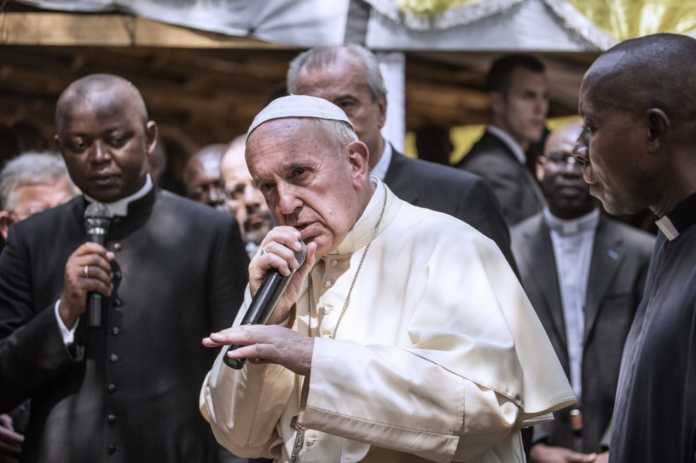
The controversial changes have deepened a growing chasm between the progressive, reform-minded papacy led by Francis and the conservative church in much of the world, especially Africa, where the number of Catholics is growing at a faster rate than anywhere else.
According to the Vatican’s Pontifical Yearbook 2025 report, the global Catholic population stands at 1.406 billion. By distribution, the Americas have the largest Catholic population, accounting for nearly half (47.8 percent) of the world’s Catholics. Africa and Europe are nearly tied in second place. With 281 million parishioners, Africa represents 20 percent, while Europe holds 20.4 percent of the global Catholic population. However, the Vatican noted that while Europe’s Catholic population has stagnated, Africa’s has surged by 3.3 percent — a sign that the balance of Catholic power is shifting.
Advertisement
“The Democratic Republic of Congo confirms its first-place position for the number of baptized Catholics, with almost 55 million, followed by Nigeria with 35 million; Uganda, Tanzania, and Kenya also register significant figures,” the report noted on the church’s growth in Africa.
A reverend sister in Ghana told TheCable that the reactions from Africans were not unexpected.
Advertisement
“Most of what he brought, the people rejected it because it was not in line with church doctrines,” she said.
“Whatever you do in this world, you will never be 100 percent. Some people will like you, some people will not like you even if you have done the best thing in the world.”
The nun, who requested anonymity because she was not authorised to speak, especially in such sensitive times, likened the lives of religious leaders to Jesus, who faced persecution despite performing miracles.
It is unmistakable that, over the past 11 years, Africa has been both a lifeline and a stumbling block for the Francis papacy. Being the first Latin American pope, he understood the struggles of coming from a developing world. In navigating Africa, a similar terrain, the pope found both deep faith and resistance — a duality that defined much of his reform journey, which ended on Easter Monday when he drew his last breath.
It is now left for the next pope to grow Francis’s ideas into fruit from seeds or to prevent them from sprouting.



